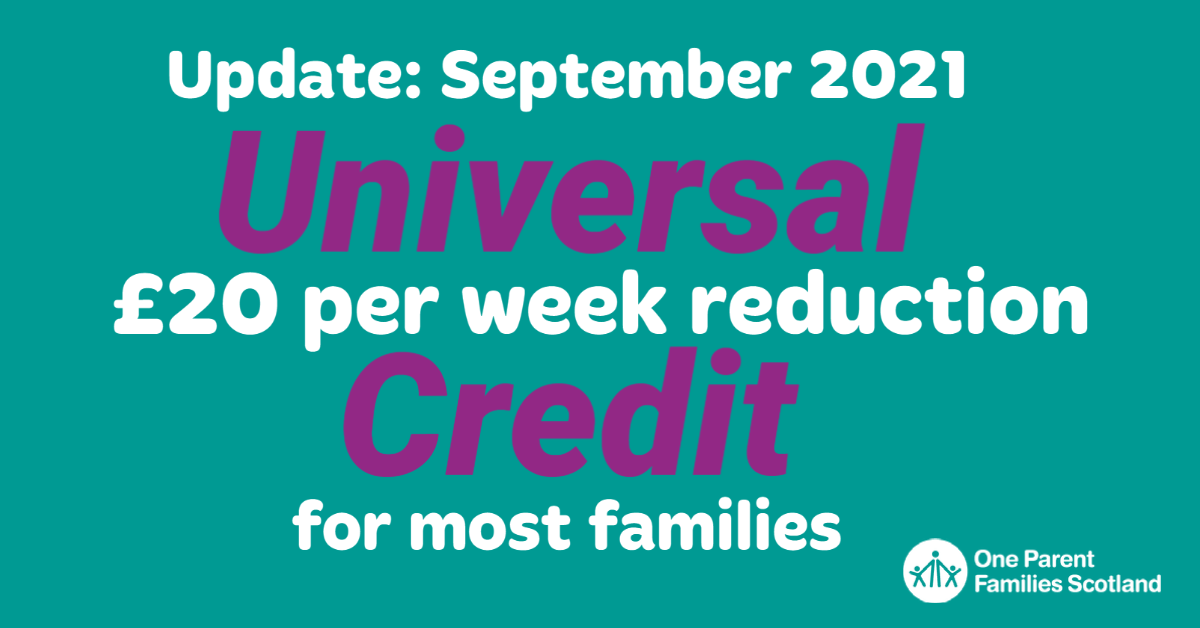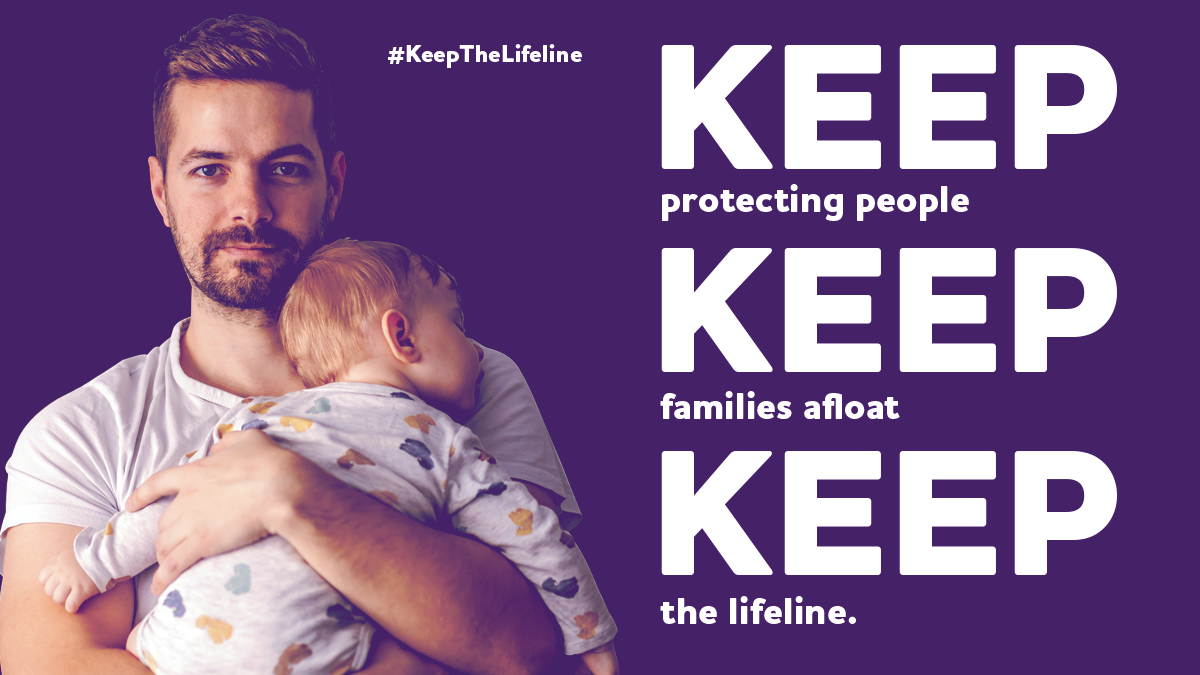Universal Credit Update
Most families receiving universal credit will see a drop in the amount they get starting from this month.
08/09/2021
News
The Government added £20 per week to the standard amount of Universal credit to help with extra expenses due to the coronavirus epidemic. This increase will come to an end on the 6th of October.
This means that you will have a drop of up to £86 in your monthly universal credit award starting from the payment that includes the 6th of October.
You will receive a letter from DWP to let you know how and when you will be affected.

You may want to prepare for this change by looking at your budget to see what changes you can make. You can also get a benefit check to make sure you are receiving all the money you are entitled to.
For more information and advice contact The Lone Parent Helpline on 0808 801 0323 or chat to us below.
If you live in Glasgow or Lanarkshire contact our local services for support.
Click here for further information on Universal Credit and other benefits.

One Parent Families Scotland, along with 99 other organisations support the campaign to halt cuts to Universal Credit. You can find out more about the campaign to stop the £20 a week reduction and download a letter to send to your MP. Keep the Lifeline Open campaign.